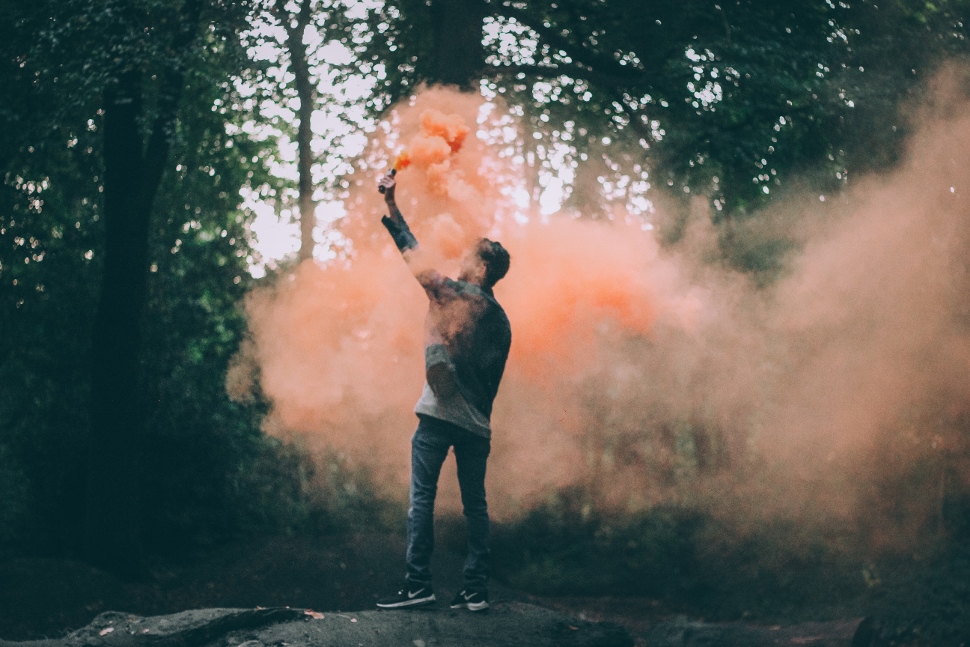
We all have self-defeating habits and do plenty to sabotage our own success. Unfortunately, it’s no different when it comes to creativity.
Neuroscience research indicates that those who struggle with being creative do one thing that creative people don’t. They fail to turn off their self-monitoring brain in the process of being creative. In other words, creative people brainstorm without slowing down to judge or criticize what they’ve just brainstormed.
In her book inGenius: A Crash Course on Creativity, creativity expert Tina Seelig talks about a researcher at Johns Hopkins University who asked jazz musicians and rap artists to improvise a piece on the fly, while their brain was under the watchful scan of an MRI machine.
The study revealed that while the artists were riffing, the part of their brain known to be the judging, self-monitoring part of the brain virtually shut down. As Seelig notes in her book, “For many activities, it’s important to have high self-monitoring of your behavior so that you don’t say everything you think or do everything that you consider. But when you are generating new ideas, this function gets in the way.”
I’ve run many a brainstorming session myself, and I see this all the time. Session stall when people become self-conscious about their ideas and worried if others will judge them. The best ideation sessions occur when participants are actively cognizant of when the judging (or fearful) part of their inner dialogue starts kicking in–and then ignore it.
It’s also critical to allow enough time for this ideation to take place once a brainstorming session is in full free-flowing, non-judgmental mode.
When I was writing my book, Find the Fire, I interviewed Hollywood producer Mark Teitelbaum, who had the privilege of working with comedy legend Robin Williams shortly before his tragic death. Teitelbaum was working with Williams on The Crazy Ones, a CBS half-hour comedy and one of Williams’s last projects.
The producer learned about unleashing creativity by watching Williams perform in the show’s pilot episode. As Teitelbaum tells it:
We were working a key scene in the episode, where Robin was sharing a tender moment with his daughter (played by Sarah Michelle Geller). We did four takes and were about to move on. Suddenly, Robin said, ‘Wait, can we do this just one more time?’ We obliged, of course, this is Robin Williams we’re talking about. Robin proceeded to go off script, improvising delivery of a heartfelt story in the voice of an Indian gentleman. The performance was unbelievably layered, textured, and nuanced. All we could do was sit in stunned admiration. Robin’s improv became the best part of a pilot that was the best pilot I’d ever seen. I learned in that moment the power of going off-script, giving it that 5thtake, and giving creative people runway to be creative.
Our best creativity can often come from that last effort, the one where you let your hair down and improvise on the fly. The point is to not cut the efforts short at the first sign of a lull.
University of California psychology professor Dean Keith Simonton (an expert on creativity and innovation) further supports this. Simonton told the Wall Street Journal, ” Many people succeed at producing innovations because they churn out a very large number of ideas, both good and bad. The most successful people tend to be those with the greatest number of bad ideas.”
By that standard, I’m basically Bill Gates.
Don’t cut the process of ideation off too soon. Protect time for creativity and hold it sacred. Let the ideas flow freely.
Studies show doing so is even more critical than the actual amount of effort you’re putting into brainstorming to begin with. College of William and Mary psychologist Todd Thrash and colleagues studied a series of writing samples among college students that were judged for creativity by fellow students.
They found that writers producing content judged to be more creative were more efficient and productive, spending less time pausing and more time writing. Those who exerted more effort spent more time pausing, deleted more words, and were better graded on technical merit, but their work wasn’t considered more creative.
So take it from some great scientific, comedic, and creative minds–stop overtly regulating and start openly riffing.




Leave a Reply